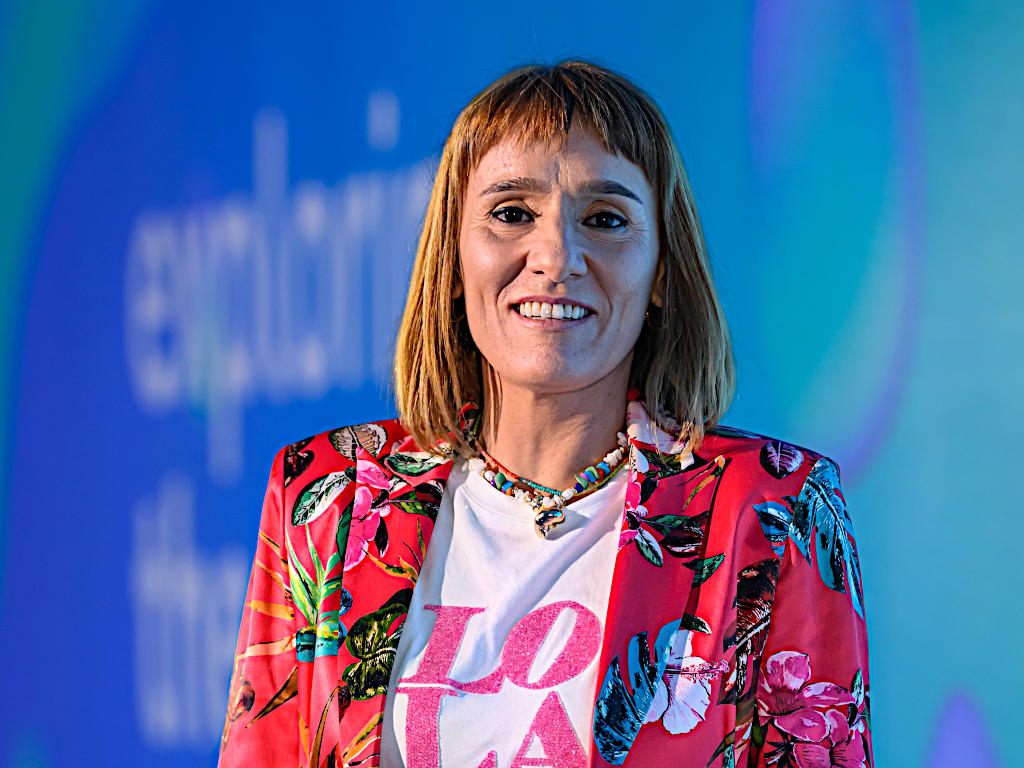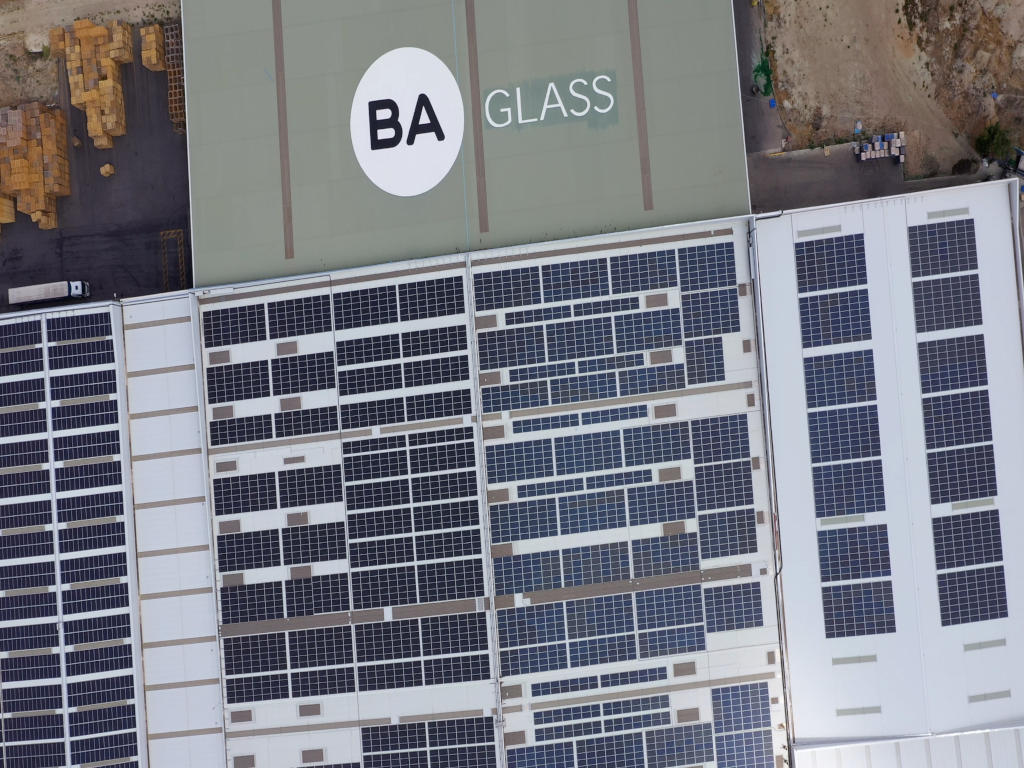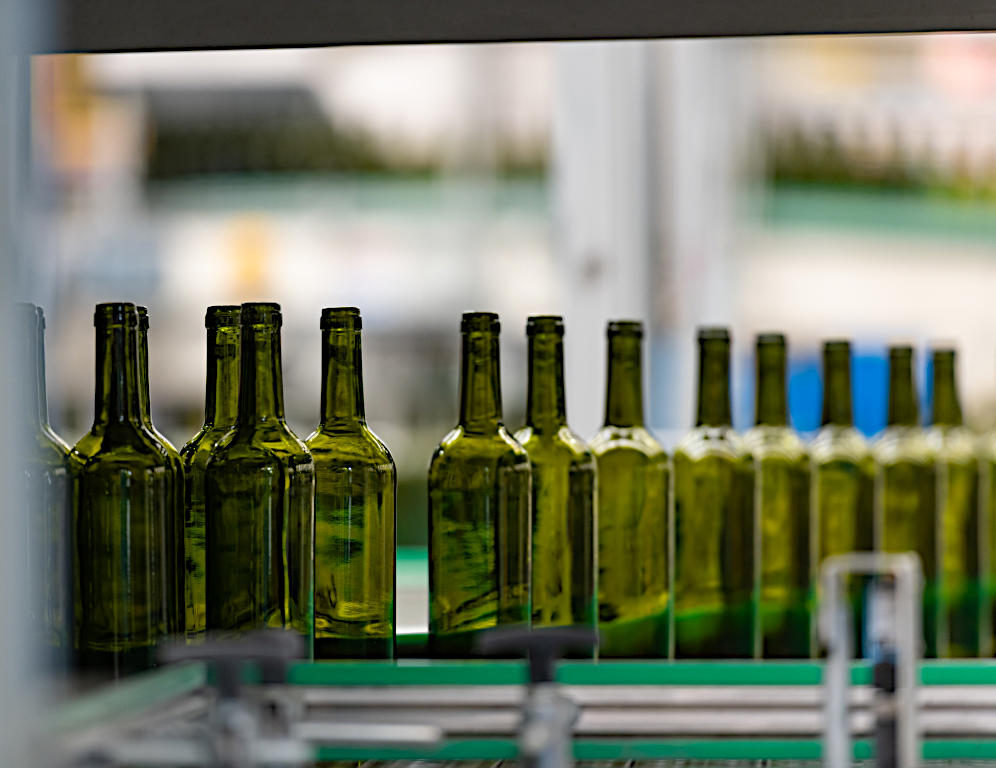GW: At the time of our last interview in 2019 there was an intention to double production capacity in Bulgaria. What is the current status of the project and plans for the future?
Since our last interview in 2019, our commitment to doubling production capacity in Bulgaria and the Southeastern Europe (SEE) region remains steadfast and according to plan. We have made substantial progress by focusing on capacity expansion and infrastructure enhancements. Recently, a new furnace in Sofia has already been inaugurated, significantly boosting our production capabilities. Furthermore, in the next months we will have two new start-up facilities in Plovdiv and Bucharest, both situated in the SEE region. These developments not only highlight our dedication to growth, innovation and meeting our customers’ needs, but also empower us to fortify our commitment to environmental sustainability.
GW: What can you tell us about BA Glass acquiring a majority stake in Mexican container glass manufacturer Vidrio Formas this year?
BA Glass’ acquisition of a majority stake in Vidrio Formas represents an exciting new chapter in our journey, marking a significant strategic move for both companies.
Vidrio Formas, based in Mexico, is a well-established player in the container glass sector with a strong regional foothold. This transaction reflects our commitment to expand our presence in the global glass manufacturing industry, providing an excellent opportunity to strengthen our position in the North American market and explore new horizons.
It will be an opportunity to combine our strengths and expertise, creating a synergy that benefits both organisations and our customers. BA is a long-term investor, and we aim to be a relevant player in this new market. We’re excited about the possibilities this venture brings and look forward to the journey ahead.
GW: How closely will the Mexican operations fit the ideal BA Glass model?
There are some differences and these will certainly be addressed in the integration process. We are sure that this will be a great learning opportunity for everyone involved. Overall, the process will allow for a collaborative approach, integrating the best practices from both entities to optimise efficiency and maximise the potential of this acquisition. Vidrio Formas just started a relevant growth and the experience of BA will certainly help in [making] the best choices.
GW: What are the production capabilities at Vidrio Formas and what are highlights of recent and planned investments?
Vidrio Formas has a considerable production capacity, supported by two operating units and a specialised cullet treatment facility. These assets are fundamental to its glass manufacturing process, contributing significantly to the company’s production capacity. Regarding recent and planned investments, Vidrio Formas just doubled its capacity with the latest investment, which will need to be consolidated before initiating other investments.
GW: How will Vidrio Formas be integrated into the group and is BA Glass’ experience of acquiring other glassmaking businesses an advantage to the process?
The integration of Vidrio Formas into the BA Glass Group will be a journey that we approach with enthusiasm. During the last decades, our history of growth has been shaped by successful acquisitions, but we remain aware that each integration presents unique challenges and opportunities. It’s a humbling experience that allows us to learn from new cultures and collaborate with diverse teams. Our past experiences have provided valuable insights into fostering meaningful relationships. We approach this integration with a sense of openness, eager to grow and evolve alongside our new partners. The BA model is consolidated and clearly will leverage the capabilities of Vidrio Formas. We count on the managers of Vidrio Formas to make this a successful integration.
GW: What is the motivation for the recently announced investment into your operations in Romania and what benefits will be achieved as a result?
The motivation behind our recently announced investment in our operations in Romania stems from our strategic growth plan [for] the SEE region. Romania, being a part of this region, is a relevant growing market, making it attractive for our growth. The investment in new facilities equipped with state-of-the-art technology aligns with our objective to expand in this region, always improving efficiency while decreasing our carbon footprint. The Romania plant is undergoing a significant modernisation [to turn it] into an attractive place to work.
GW: Are there further major investment projects in the pipeline at your other plants in Germany, Greece, Poland, Portugal and Spain?
We maintain a steadfast commitment to investment projects across our plants. These investment projects are driven by our dedication to serving our customers while maintaining a strong focus on sustainability. An example of that is the investment in an ECO furnace that substantially reduces the use of gas by green energies and will allow us to significantly reduce the CO2 emissions. Many other[s] are planned, waiting for the right moment to be launched.
Our ongoing investments reflect our proactive approach to staying at the forefront of the glass manufacturing industry, ensuring that we meet evolving market demands and environmental standards.
GW: How would you summarise the company’s investment strategy across the operations and is most future growth likely to be achieved by the construction of new facilities, brownfield acquisitions or major upgrades of existing plants?
I cannot share our investment plans, but our investment strategy is robust, driven by an ambitious growth plan and a strong focus on sustainability and digitalisation. In recent years, we have been investing in our plants, namely in the integration of state-of-the-art technology and in changing the way of working in our plants. These investments not only enhance our operational efficiency but also create improved working conditions for our employees. A central pillar of our investment strategy is sustainability, and during the last few years, our shareholders have been allocating capital to ensure the fulfilment of our environmental and sustainability objectives.
GW: How well received was the first edition of your recent ‘Glass Secrets’ meeting to share digitalisation and innovation initiatives with customers?
Our customers are [at] the centre of our activity. BA is committed to fostering strong and meaningful relationships with clients, and ‘Glass Secrets’ is one of the initiatives we have been developing to achieve this goal.
Glass Secrets is a series of small events designed with a singular aim in mind: to bring us closer to our clients and share knowledge. It’s where various topics from sustainability to innovation and digitalisation are discussed, where we open our doors and invite our customers into our home. Within these sessions, our clients can raise questions, engage in discussions, and collectively brainstorm innovative ideas that drive our industry forward, through the synergy of partnership and collaboration.
This initiative has been highly appreciated by our clients; in the current year we have hosted five editions of Glass Secrets in our plants, engaging with 12 different clients. And we will continue!
GW: Are there any other aspects of BA Glass’s performance since our last interview that you would like to highlight?
Yes, in fact since our last interview there are several noteworthy aspects of BA Glass’s performance that could be highlighted. First and foremost, we are more and more committed to continuous improvement, constantly seeking new tools and ways of working to achieve better results and make the glass industry a much more attractive place to work and develop careers.
Since 2018, we have been engaged in boosting the incorporation of digitalisation into our processes. Our motto has been “Make it simple”. The development of technology and AI is a must, but the main effort is on the [latter]. We developed a vision, “Lights-out plant” inspired by other industries and leveraged by an ambitious roadmap. Since then, we [have been] build[ing] up an internal team of data scientist and engineers that work on several use cases and, if successful, [we will] roll out them to all the plants. [From the outset we were] clear we could not do this transformation alone, and since then we [have] engaged with suppliers and many other partners to make it possible.
Our teams have been challenged by the urgency of the industry’s transformation, and by the fact they can have a relevant role in that transformation.
As we move forward, we remain committed to further[ing] the potential of digitalisation to drive innovation, efficiency, and sustainable growth.
GW: In general across the group, what are your expectations for the business in 2024?
I am very cautious to do forecasts regarding the coming months. The industry is, again, facing challenges for which there is no history. Consumers changed their behaviours since the pandemic, and it is still not clear how they will land. The reduction of the families’ purchasing power is having dramatic effects on the economies worldwide, and inflation is far from being controlled.
But I am very confident regarding the future for glass packaging. It has all the ingredients to be a preferred packaging in a more sustainable world.




